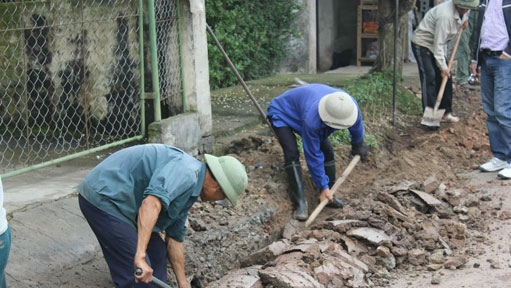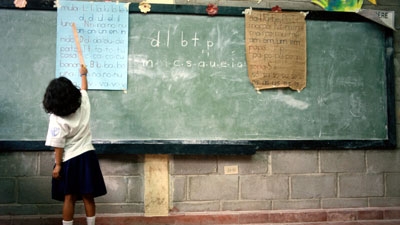The topic: climate change. Around the table: representatives of some of the world’s top philanthropic foundations and World Bank Group President Jim Yong Kim.
They met at the World Bank in Washington earlier this month to look for ways to work together on one of today’s most pressing issues – how to stop the Earth from warming to the point where millions of people, rich and poor, will be threatened by extreme weather, rising seas, and declining agricultural yields.
Despite the scale of the problem, no global plan exists that is equal to the task, said Kim. The level of scientific research needed for solutions is “not even close.” There is a “tremendous lack” of financing.
“Something is not quite clicking … What will it take to rise to the challenge?” he asked.
The question brought a flurry of comments and ideas, some already in play. Among them, helping cities, where 75% of the world’s population will live, and which will produce 80% of global greenhouse gas emissions by 2050.
This month, the Rockefeller Foundation announced its 100 Resilient Cities initiative, a $100 million effort to build disaster resilience in cities around the world. The foundation, celebrating its centennial anniversary, helped New Orleans recover in the aftermath of Hurricane Katrina and led the New York resilience commission after Superstorm Sandy. Its Asian Cities Climate Change Resilience Network addresses climate change vulnerabilities and urban issues. The new initiative will give 100 cities access to the latest best practices and help them develop and implement a disaster resilience strategy.
“We have had unbelievable expressions of interest,” Rockefeller Foundation President Judith Rodin told the World Bank Group Foundations Advisory Council on May 17. “Cities are on the front lines; this is where all of the population will be all over the world, but particularly in Asia, Africa, and Latin America. The growth is so incredibly dramatic. We have got to do something. “
Of the top 100 urban areas of the world, 70 are clients, but only eight are credit-worthy, said Rachel Kyte, vice president of the Bank’s Sustainable Development network. They can’t get the financing they need for sustainable urban development, let alone to plan for and withstand disasters. This is an area where foundations and the Bank Group could combine forces to help, she added.
“What we want to do is find things we can do that would leverage what you’re doing,” said Kyte.


